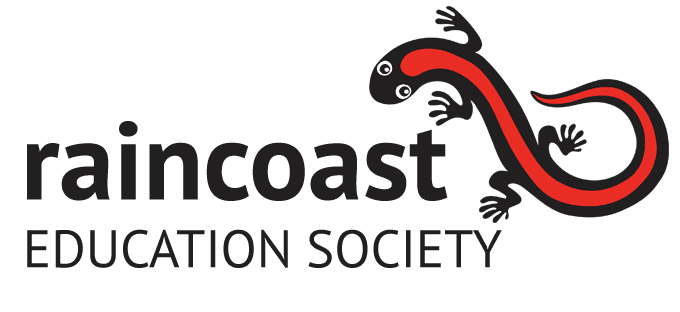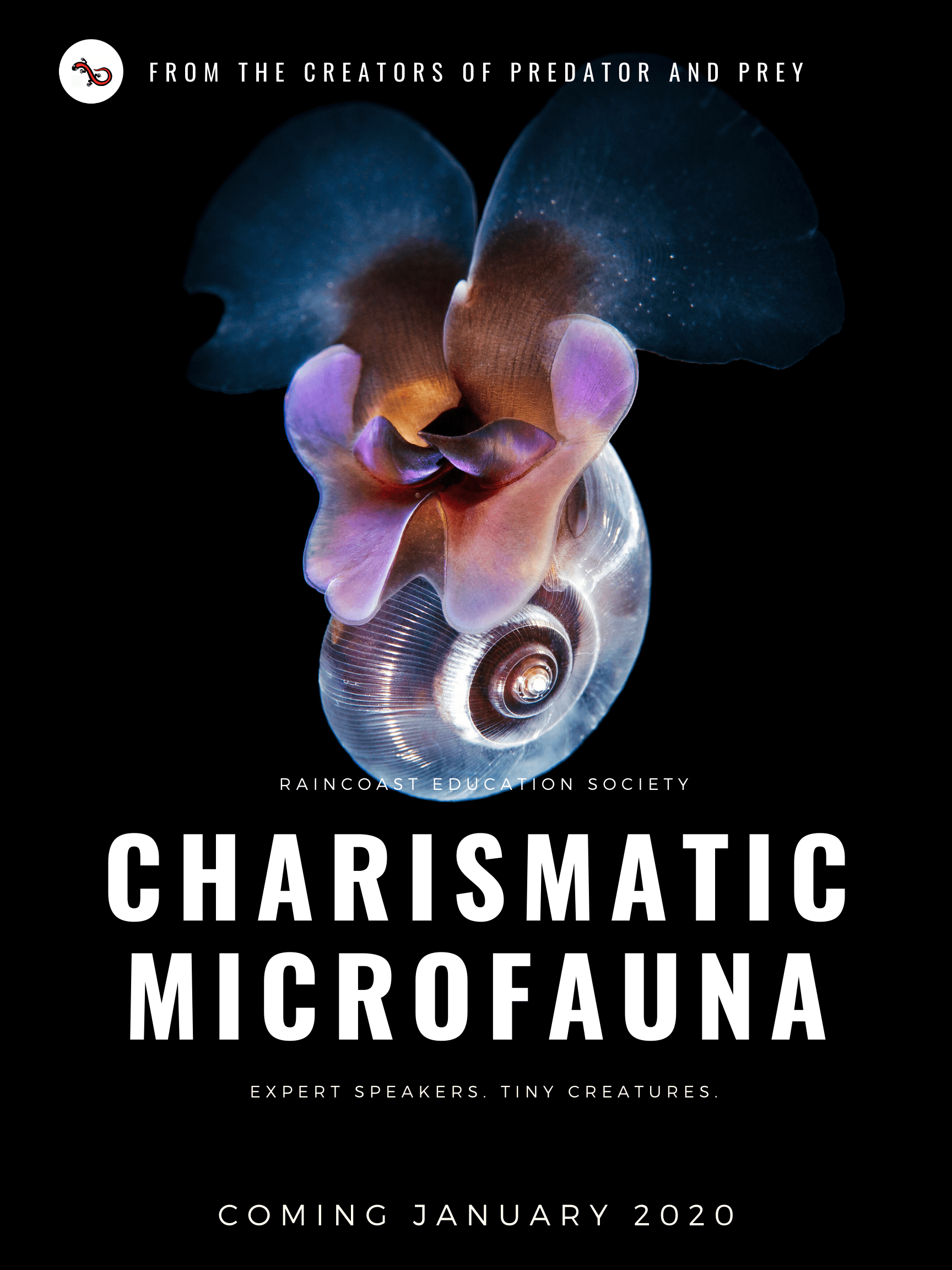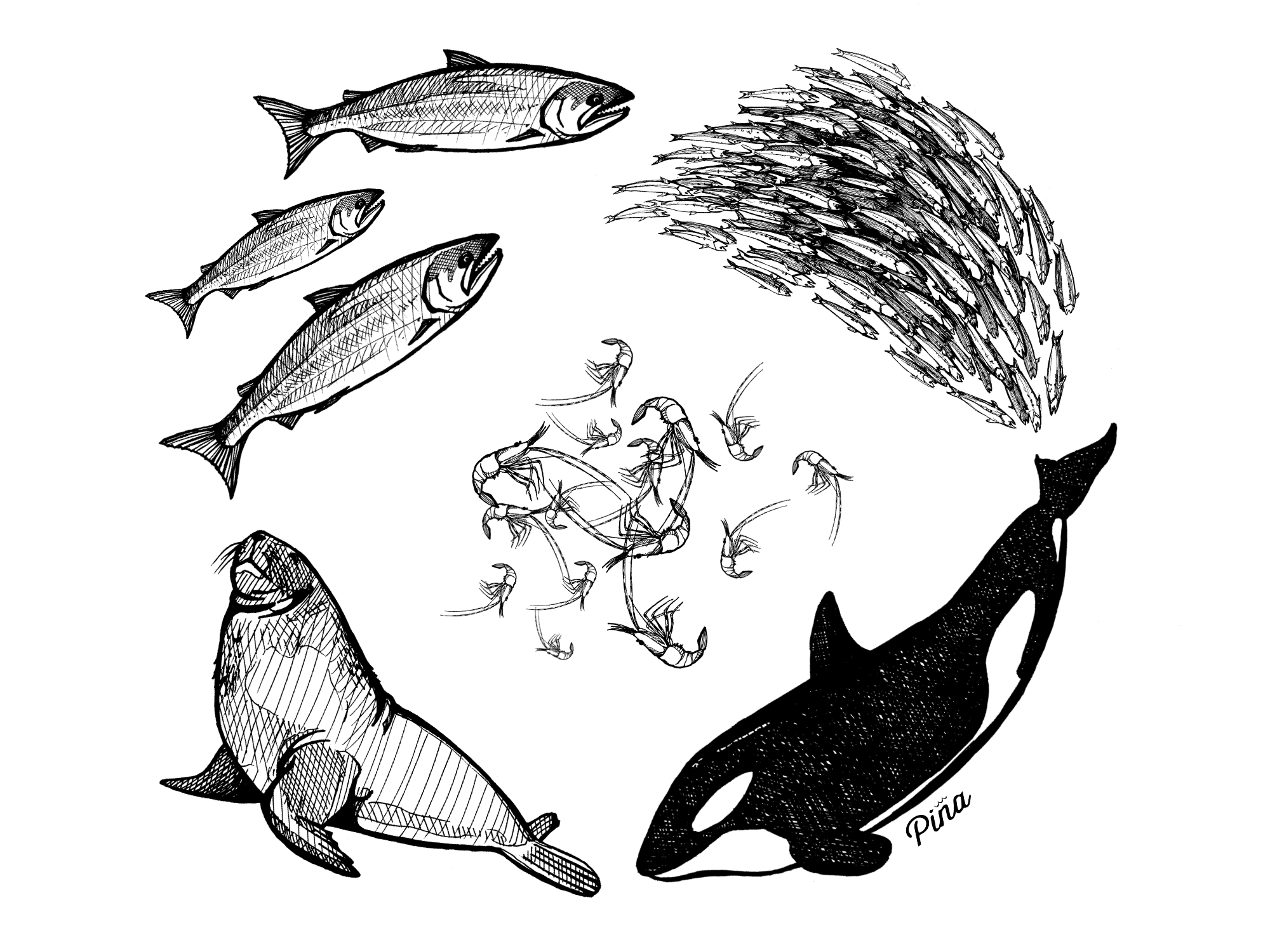2020 Raincoast Speaker Series
“CHARISMATIC MICROFAUNA”
Whether you are into bugs that break down decaying forest debris and turn over soil or sea butterflies that help us monitor ocean acidification, there is something to capture your heart in this year’s Raincoast Speaker Series. Join us for 5 different topics from January to March, each an in-depth examination of one special tiny yet fascinating creature. Expert speakers will share their tales of discovery, and the big roles these tiny animals play.
Raincoast Speaker Series punchcard – attend all five topics to be entered in a draw for an amazing prize!
New this year we will be offering the series in parallel in Ucluelet and Tofino. That means two opportunities to see each speaker.
Thank you to Pacific Sands Beach Resort for providing accommodation for our speakers again this year!
Pterrific Pteropods and the Terrible Tale of Ocean Acidification
with Matt Miller, PhD Student UVic
Wednesday, February 5th, 7:00 pm
George Fraser Room @ Ucluelet Community Center (500 Matterson Rd)
Thursday, February 6th, 7:00 pm
Ecolodge Classroom @ Tofino Botanical Gardens (1084 Pacific Rim Hwy)
$5 at the door
Pteropods are the most beautiful and fascinating snails you’ve never heard of! Commonly called “sea butterflies”, these tiny planktonic marine snails spend their entire life in the water column swimming using two “wings”. Pteropods are important for two main reasons: they are a major food source for other marine organisms, and they contribute significantly to the biological carbon pump that helps regulate our climate. Studies have indicated that pteropods may be negatively impacted by ocean acidification dissolving their shells. If pteropods disappeared, the effects would be seen throughout the food web and in the biogeochemical cycles of the ocean. This talk will highlight the bizarre and wonderful biology of the pteropod Limacina helicina, and explain how ocean acidification may be threatening them along with many other marine species.
Matt Miller is a PhD student in the University of Victoria’s School of Earth and Ocean Science. Matt’s interest in the ways humans are impacting the ocean have led him to research microplastics, and currently for his PhD dissertation, ocean acidification. Matt grew up on Vancouver Island and received a Bachelor of Science in Fisheries and Aquaculture from Vancouver Island University. As Executive Director of the Surfrider Foundation University of Victoria Club, Matt engages with students and members of the public on issues such as marine plastic pollution, and organizes monthly beach cleanups in his community. He also sits on the steering committee for Ocean Wise’s Ocean Bridge program, helping passionate youth across Canada get more involved in ocean stewardship. Matt has a passion for science communication and literacy, and regularly delivers science presentations to community groups through the UVic Speaker’s Bureau on his topics of research.
A Short (and Long) History of Sex in the Sea
with Dr. Chris Neufeld, Associate Director, (Education) at Bamfield Marine Science Center
Wednesday, March 4th, 7:00 pm
George Fraser Room @ Ucluelet Community Center (500 Matterson Rd)
Thursday, March 5th, 7:00 pm
Ecolodge Classroom @ Tofino Botanical Gardens (1084 Pacific Rim Hwy)
$5 at the door
Dr. Chris Neufeld is a scientist and educator with broad-ranging expertise in marine systems. He holds a PhD from the University of Alberta and has published 15 peer-reviewed papers on topics ranging from barnacle life history, island plant communities, and kelp forest declines. Chris is currently the Associate Director (Education) at the Bamfield Marine Sciences Centre where he maintains a small research program and oversees BMSCs field-based education programs including the delivery of 25 immersive senior undergraduate courses, overnight field trips for 3000 students per year, and active citizen science initiatives related to biodiversity.
Previous Speaker Series
We have hosted a huge variety of quality presentations over the years!



